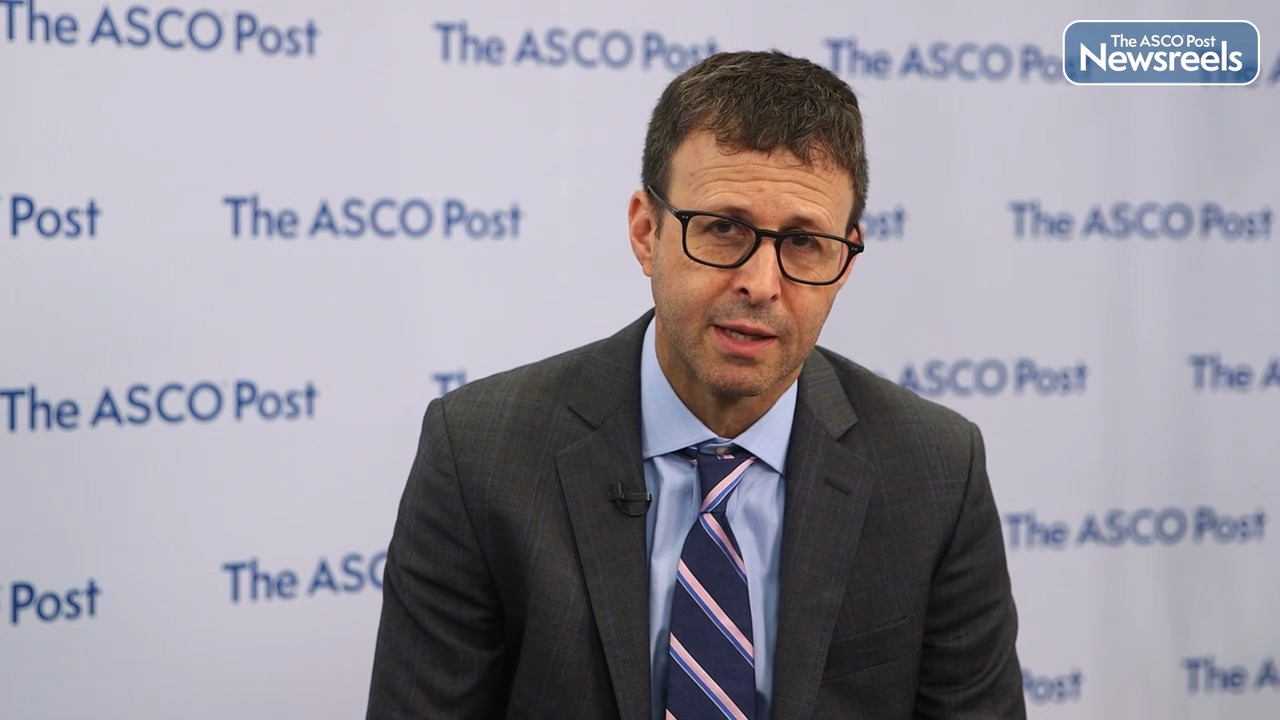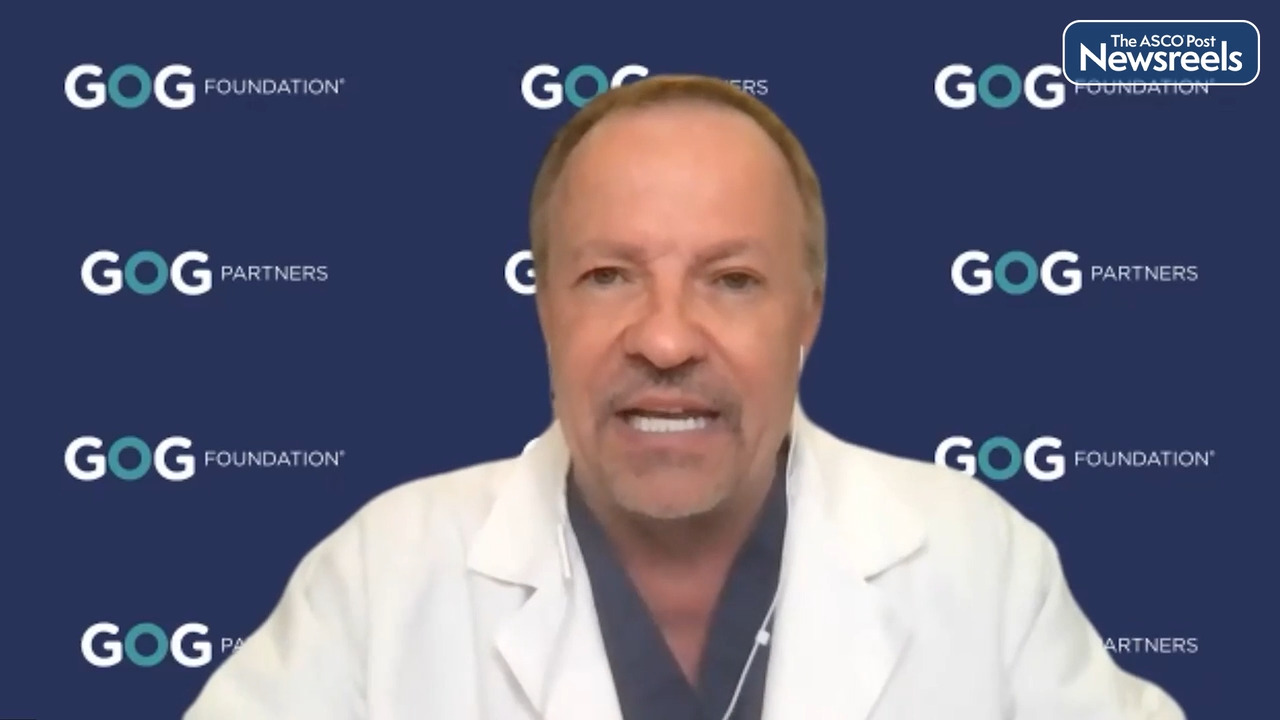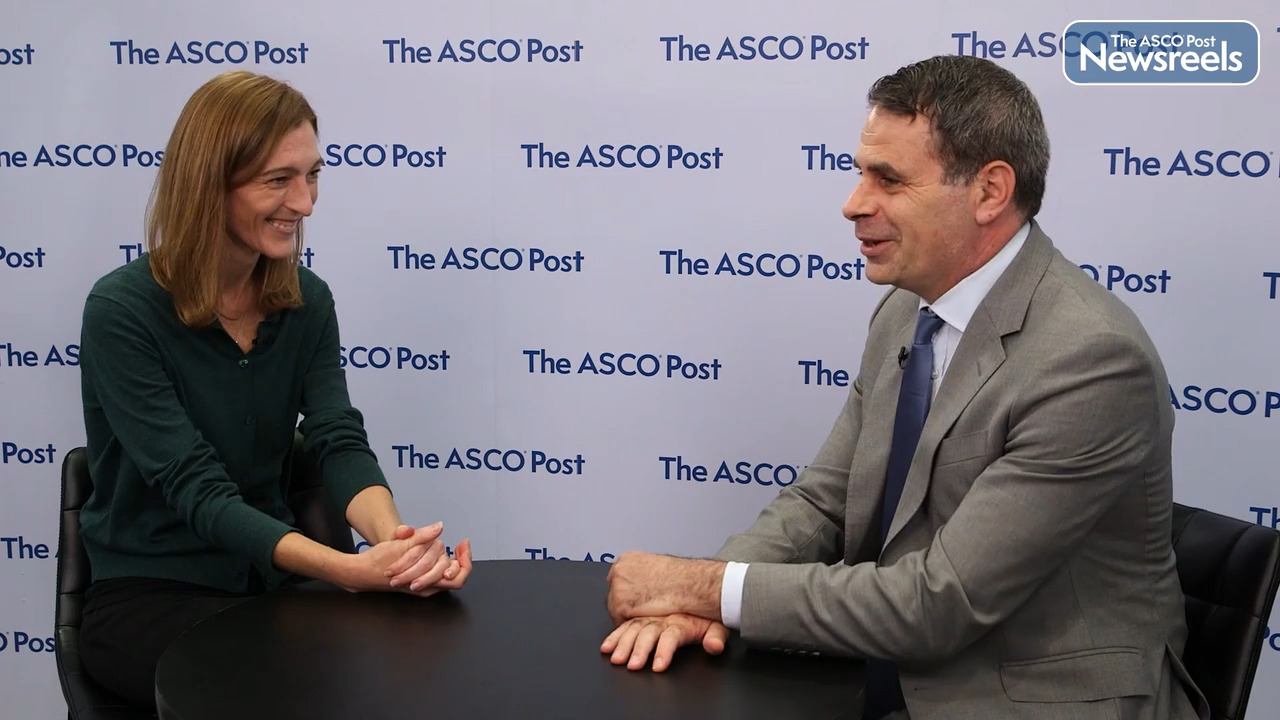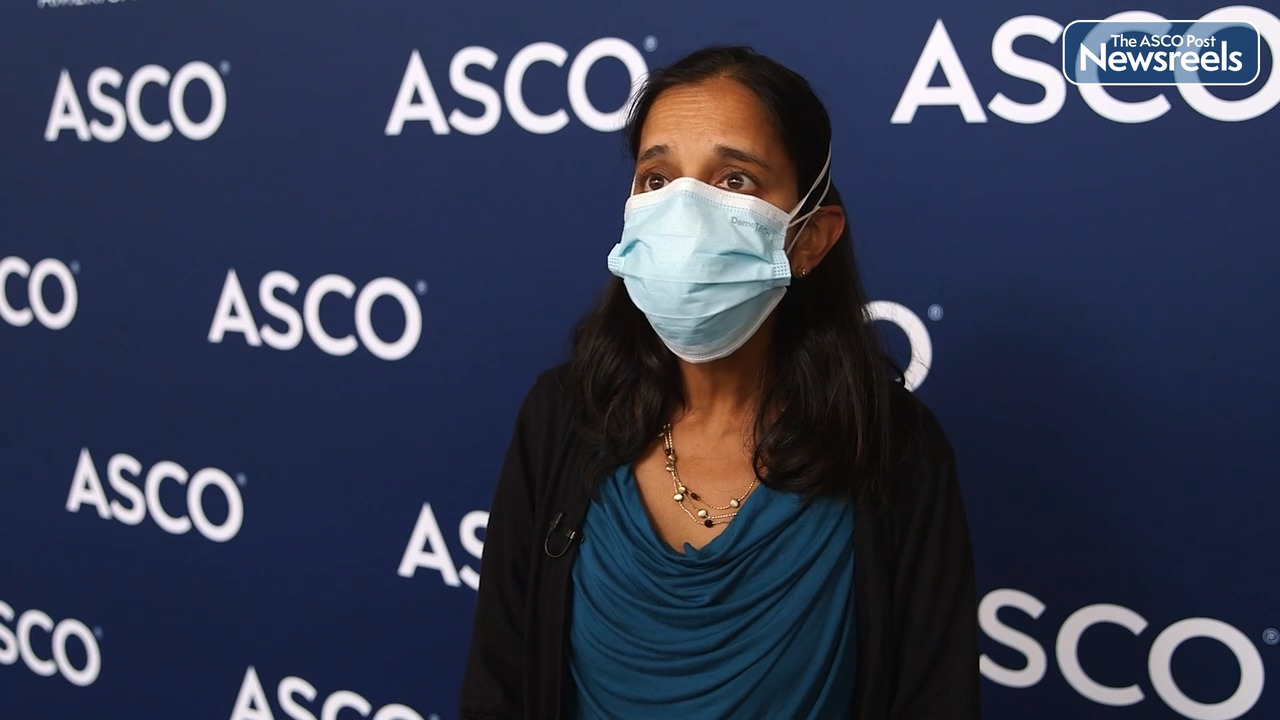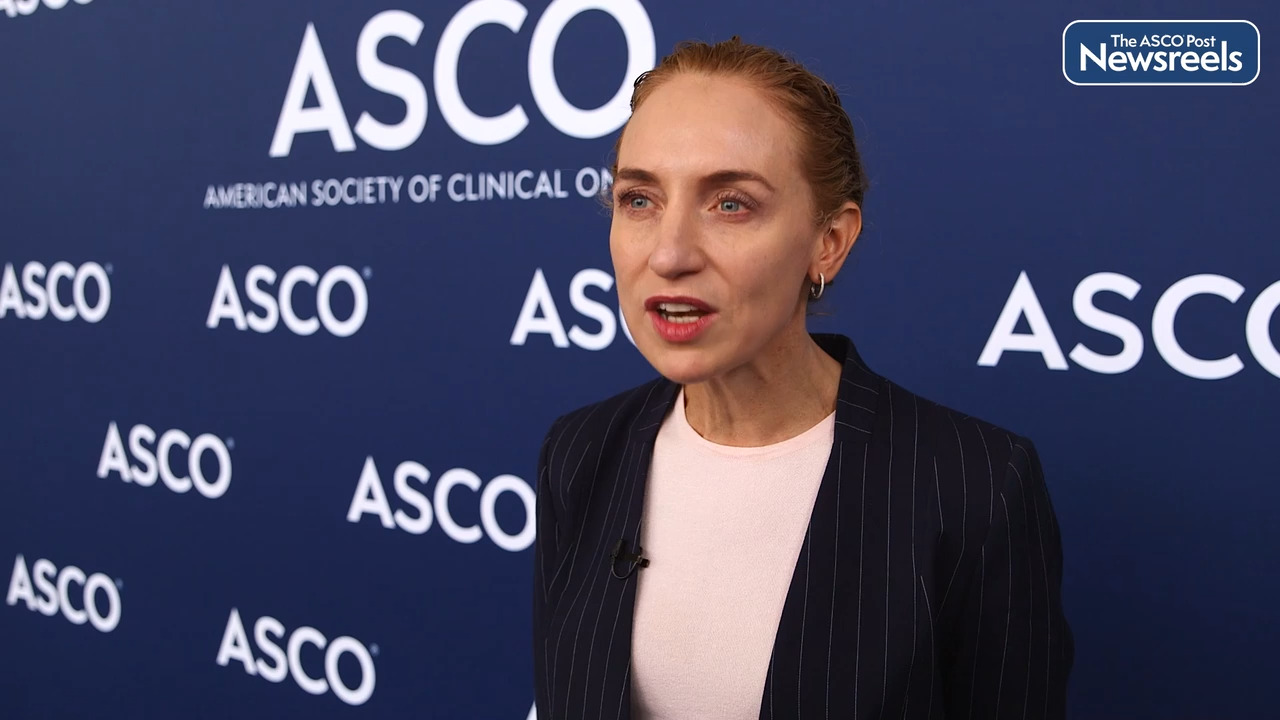Transcript
Disclaimer: This video transcript has not been proofread or edited and may contain errors.
Our study, the DETERMINATION trial, sought to evaluate the impact of novel therapies, and in particular triplet novel therapies, in the setting of autologous stem cell transplant, and to evaluate best the timing and position of transplant in the era of novel drugs. Now, specifically the triplet we were evaluating was RVD. And in this study, we looked at RVD induction remission treatment with transplant used early or kept in reserve. Very importantly, we also looked at the impact of lenalidomide maintenance continuously after successful induction remission therapy. So RVD consists of lenalidomide, bortezomid, and dexamethasone combined. And the initial treatment phase prior to stem cell collection was three cycles. Stem cells were then harvested, and for patients assigned to early transplant, they underwent autologous transplant, followed then by two further cycles of RVD and then lend maintenance until progression and or intolerance. For the non-transplant group, the patients received RVD for a total of eight cycles. Stem cells were harvested after three, and lenalidomide maintenance continued until either progression or intolerance. Bisphosphonates were used routinely as antiresorptive therapy in both arms. Now we randomized 72 patients across 56 centers. So this was a remarkable team effort across the country. And we were able to show in the study that the primary endpoint of the study was met. Showing a highly significant gain in progression free survival in favor of early transplant. What was exciting though, was we saw that with this approach for both arms, these were the best results seen to date. The median progression-free survival for the delayed transplant arm prior to moving on to next therapy was in excess of 46 months. And for those patients who underwent early transplant, the PFS was a remarkable 61 month. So about a 21 month difference in favor of early transplant. Now, what was so interesting though, was that actually we did not observe a survival benefit. So in fact, the use of transplant later, or other salvage therapies, resulted in equivalent survival with median follow up at 76 months. Now, response rates were similar between the two arms, but we were able to show there that the MRD rate was significantly better for the early transplant group versus the delayed transplant group. However, nonetheless, if you achieved MRD negativity with either approach, progression free survival was remarkably stable, suggesting this as a secondary endpoint might be a very useful tool going forward in understanding who benefits from what. Now in that same context, it's important to note that with the early transplants, we did see a higher rate of toxicities, as we would expect. Importantly, we saw a significant drop in quality of life across the transplant procedure, but encouragingly patients recovered, and this effect appeared to be transient. Of some concern, however, was that we did see a significant signal against early transplant for secondary leukemia, in particular AML and MDS. Now, the numbers were small. We saw 10 patients affected by this in the early transplant arm versus zero in the arm in which transplant was kept in reserve. And so this is an important finding that we'll continue to monitor carefully and evaluate. What was exciting though, was the use of salvage therapies. And in the early transplant group, this consisted of an array of different approaches, as one would expect, monoclonal antibodies, pomalidomide, and so forth. Interestingly and importantly, in the deferred transplant group or delayed transplant group, only 28% of the patients chose to have transplant immediately at first relapse or indeed at any stage so far in their management. And despite that, the survival was the same, which suggests to us that salvage approaches with novel treatments was highly effective in preserving survival overall. So I think the implications of this study are really quite substantial. They show that patients have the option of keeping transplant in reserve in particular circumstances in a subset of these patients. Conversely, however, clearly early transplant results in a dramatic progression free survival benefit, in favor of the use of high dose morpholine early, and a critical research question for us is how can we do better? Are there better approaches to achieving the same thing? And in this regard, we're very excited because we now have quadruplets of drugs, for example, RVD plus daratumumab, KRD plus daratumumab, RVD plus isatuximab, KRD plus isatuximab. These are very exciting quadruplet approaches, all of which are showing great promise and very high rates of MRD, whether or not you pursue transplant. So I think the future is particularly exciting as we incorporate yet more novel agents to improve patient outcome. Importantly, there were some subgroup analyses done that were planned A priority. And in these, there were a number of findings that were of note. One in particular was that we had the highest representation of African American patients in this setting seen to date. And we were very pleased to see this, of approximately 20% in fact. In the African American population outcomes were excellent, but very interestingly, it did appear that in fact, the benefit of transplant in that particular subgroup was not as pronounced as it was in others. And similarly, in other high risk versus standard risk groups, differences were seen. None were so big that we could be definitive, but nonetheless, there were a number which allow us to generate hypotheses to better understand who benefits from what most. And I think this is a very important part of the study that will be obviously a focus for future trials going forward.
